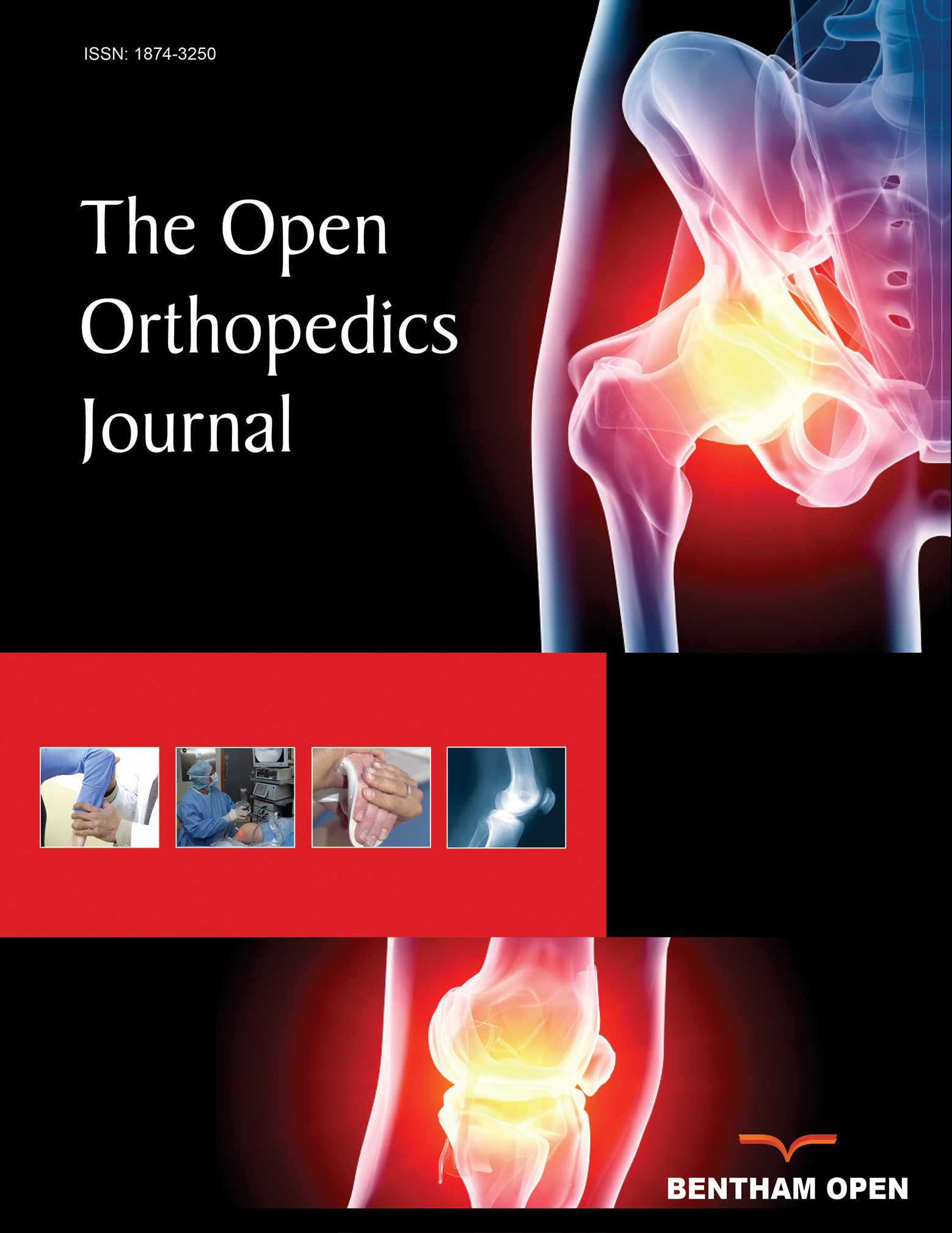All published articles of this journal are available on ScienceDirect.
Application of Tranexamic Acid in Total Knee Arthroplasty – Prospective Randomized Trial
Abstract
Background:
The use of tranexamic acid (TXA) in total knee arthroplasty (TKA) has shown good results. Bleeding may cause local complications consequently greater pain and reduced function postoperatively. No study has related the use of TXA to these facts.
Objective:
The aim was to evaluate the effects of TXA haemoglobin, Western Ontario and McMaster Universities Index (WOMAC), pain intensity and flexion gain after TKA.
Methods:
43 patients were randomized and then underwent TKA. TXA was applied to 22 of these patients before closure of the joint capsule. Haemoglobin measurements (mg/dL) were taken preoperatively and 24 and 48 hours after surgery. The WOMAC questionnaire and pain visual analogue scale (VAS) were applied, and flexion gain was measured up to the second postoperative month. Statistical analysis compared the results to determine whether there were differences between the groups for each of the evaluated times.
Results:
There were differences in favour of the drug 48 hours postoperatively for the haemoglobin variable (p = 0.01), in pain evaluation, 24 and 48 hours, postoperatively (p < 0.01) and in flexion gain, 24 hours after surgery (p = 0.03). There were no significant differences between the groups in the haemoglobin evaluation 24 hours postoperatively, in pain assessment 7 days, 21 days and 2 months, postoperatively, in flexion gain 48 hours, 7 days, 21 days and 2 months, postoperatively and in WOMAC after 2 months.
Conclusion:
In addition to reducing bleeding, topical TXA improved pain and increased flexion gain in the first hours after TKA.
Trial Registration:
RBR-9b4qgq


